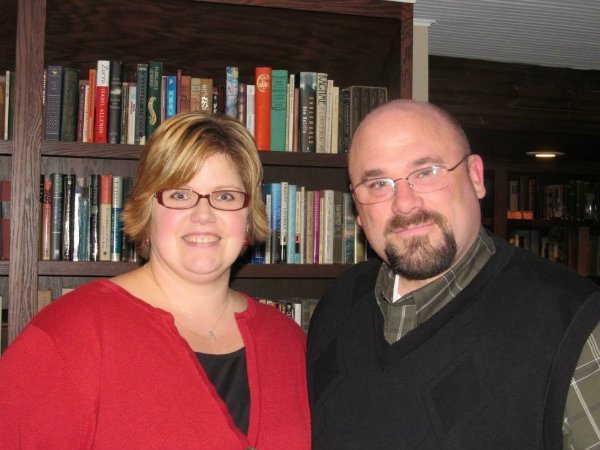 Ann Marty, MD, cared for Chris Cribbs for many years, identifying his Hodgkin’s lymphoma and connecting him with the specialists and teams who prompted his remission for the last 17 years. He beat those odds.
Ann Marty, MD, cared for Chris Cribbs for many years, identifying his Hodgkin’s lymphoma and connecting him with the specialists and teams who prompted his remission for the last 17 years. He beat those odds.
He was a lovable guy with a knack for making others laugh and active as a Special Olympics coach and volunteering at Maple Point.
An out-of-the-blue heart attack robbed friends and family of the laughter the 44-year-old offered and brought tears to those who loved him. Dr. Marty’s familiar face helped his family begin healing.
“You expect to see your doctor when you’re sick or have an appointment, but (Dr. Marty) met me at the hospital, reassuring me that my decisions – the ones I wasn’t prepared to make – were right. She never left my side, checking on me and my son at home, in her office and around town,” wife Stacy Cribbs said.
 Dr. Marty said supporting families in need is one of the best parts of medicine. Patient-centered care is the heart of the practice.
Dr. Marty said supporting families in need is one of the best parts of medicine. Patient-centered care is the heart of the practice.
Carle Monticello’s care team is expanding, welcoming Kevin Kim, DO, and Habeeba Sirajuddin, MD. Both are accepting new patients, building new connections and providing the right care at the right time.
The National Committee for Quality Assurance (NCQA) recently recognized Carle Monticello for successfully following the Patient-Centered Home model of care.
“We certainly want them to reach out for help when they are under-the-weather or battling illness, but many times it’s most satisfying to see patients healing, progressing and taking good care of themselves,” Dr. Marty said.
 Quick access and approachability are strengths of the medical home model. This successfully follows a model where a physician may focus their visit with a patient on the most pressing issue, while others on the team address a patient’s more routine health maintenance needs.
Quick access and approachability are strengths of the medical home model. This successfully follows a model where a physician may focus their visit with a patient on the most pressing issue, while others on the team address a patient’s more routine health maintenance needs.
“Our entire care team stands ready to support local families no matter what life throws at them,” Dr. Marty said. “Medicine today supports the whole person and sometimes their family, meeting their needs from infants to adults, life through death.”
Cribbs said the same level of professionalism and care shines throughout the practice.
“It’s a very close knit practice who knows me when I walk in the door,” she said. “They watched my husband, and now my son, growing up.”
The convenience and location attract her, too. Words she uses to describe the team: approachable and present.
“Every single person goes above and beyond the normal ‘9 to 5,’ offering a smile and helping hand,” Cribbs said.
 The patient-centered medical home model maximizes and improves patient access and care. And saves resources, too.
The patient-centered medical home model maximizes and improves patient access and care. And saves resources, too.
Kevin Kim, DO, said a team supports a primary care provider – advanced practice nurses (APPs), physician assistants, Registered Nurses (RNs), License Practical Nurses (LPNs), medical assistants, care coordinators. Everyone has a role to provide different aspects of medical care.
“So, a doctor may refer a high-risk patient with diabetes to a nurse or care coordinator to discuss their care plan, set self-care goals and address their medication questions,” Dr. Kim said. “Teams also proactively reach out to patients in particular populations to remind them to come in for immunizations or preventative care. It offers continuity of care, across the spectrum, from the people who know a patient best,” he said.
Patients require less follow-up and show healthier results.
Cribbs said she never feels rushed and there are no “hoops” to jump through when she needs to be seen.
“They treat me as a person – not a patient and address our entire family’s needs. I know we’re not just a number or a prescription, but treating your whole self,” she said. “They address not only your physical needs, but they attend to you on a more emotional and spiritual level, as well, which results in excellent care.”
Categories: Staying Healthy
Tags: innovation, Monticello, pediatrics, loss, Kim, Marty, medical home model, Women's Health
